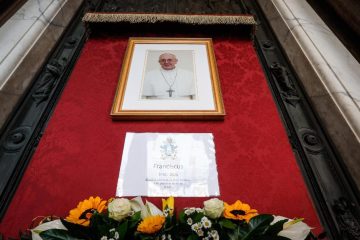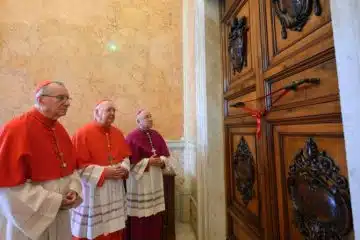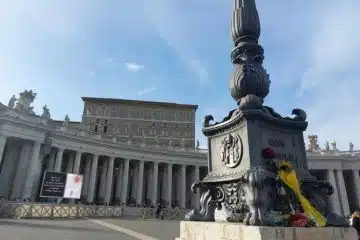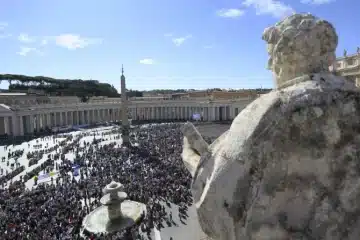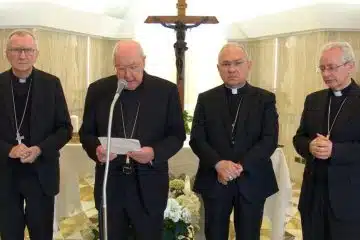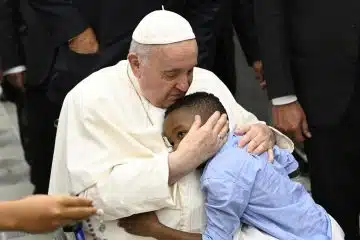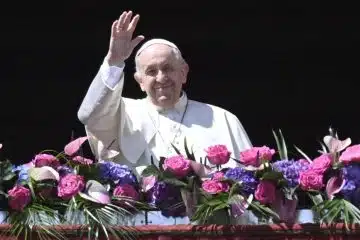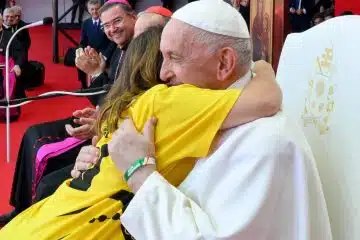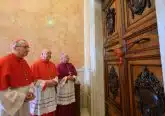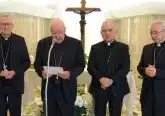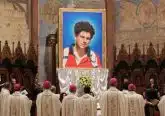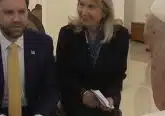Love, not some idea of perfection, leads to happiness, pope says

IMAGE: CNS/Paul Haring
By Cindy Wooden
VATICAN CITY (CNS) — Love and solidarity are what make the world a better place, not a focus on physical perfection and hiding away those who do not fit a commercial ideal, Pope Francis said.
“The world does not become better because only apparently ‘perfect’ — not to mention fake — people live there, but when human solidarity, mutual acceptance and respect increase,” the pope said June 12 celebrating Mass for the Year of Mercy jubilee of the sick and persons with disabilities.
Several altar servers with Down syndrome assisted Pope Francis at the Mass in St. Peter’s Square. Persons with disabilities proclaimed the first two Scripture readings, including by using braille.
The Gospel story, about the sinful woman who washed Jesus’ feet with her tears, was acted out while a deacon read it in Italian, and sign language interpreters were stationed throughout the square.
“Each of us, sooner or later, is called to face — at times painfully — frailty and illness, both our own and those of others,” Pope Francis said in his homily.
Limitations are part of being human, he said, yet today there is a widespread notion that “sick or disabled persons cannot be happy, since they cannot live the lifestyle held up by the culture of pleasure and entertainment.”
“In an age when care for one’s body has become an obsession and a big business, anything imperfect has to be hidden away, since it threatens the happiness and serenity of the privileged few and endangers the dominant model,” the pope said. “In some cases, we are even told that it is better to eliminate them as soon as possible, because they become an unacceptable economic burden in time of crisis.”
People with such attitudes, he said, “fail to understand the real meaning of life, which also has to do with accepting suffering and limitations.”
And for Jesus, he said, the sick and the weak, those cast aside by society — like the woman in the Gospel story — are precisely the ones he loves most.
The only path to happiness is love, Pope Francis said. “How many disabled and suffering persons open their hearts to life again as soon as they realize they are loved! How much love can well up in a heart simply with a smile!”
The day before the Mass, the pope held a special audience for participants in a conference sponsored by the Italian bishops’ office for catechesis for disabled persons. Saying that he knows speeches can be boring — and people sneak a look at their watches thinking, “when will he stop talking?” — the pope opened the meeting to questions.
Participants asked Pope Francis how parishes can overcome fear of people who are different, how they can fight discrimination of those with disabilities and how to help a parish that thinks it cannot welcome the disabled and prepare those with developmental difficulties for the sacraments.
Encountering and welcoming someone who is different can cause fear at first, the pope said. But “we are all different. There is no one exactly like another.”
“Differences are a richness because I have something and you have something else and by putting the two together we have something more beautiful, something greater,” the pope said. Diversity is not something to fear, but is “the path to improvement, to be more beautiful and richer.”
Discrimination, especially in a parish, “is something very ugly,” Pope Francis said.
“It is true that if you want to receive Communion, you must have had preparation. And if you do not understand the language (of the catechesis), for example if you are deaf, you must have the possibility of a preparation with sign language,” the pope said.
A pastor who says his parish cannot provide special religious education classes “must convert,” the pope said to applause.
“Think of a priest who does not welcome everyone. What advice would the pope give him?” Pope Francis asked before responding, “Close the doors of the church! Either everyone or no one” should enter.
The priest might try to defend himself by saying that while everyone is welcome in his parish, the developmentally disabled cannot receive Communion because they would not understand what they are doing. Pope Francis said his response to that would be, “You are the one who does not understand!”
“We all have the same possibility of growing, moving forward, loving the Lord, doing good things,” he said.
Pope Francis told those at the audience that when St. Pius X ruled in 1910 that children as young as 7 years old could receive Communion, similar objections were raised: “But that child won’t understand,” he said the critics complained.
But St. Pius went ahead, knowing “that children understand in a different way,” he said. “Each one of us has a different way of understanding things. One understands one way and another in a different manner, but we can all know God.”
– – –
Copyright © 2016 Catholic News Service/U.S. Conference of Catholic Bishops. www.catholicnews.com. All rights reserved. Republishing or redistributing of CNS content, including by framing or similar means without prior permission, is prohibited. You may link to stories on our public site. This copy is for your personal, non-commercial use only. To request permission for republishing or redistributing of CNS content, please contact permissions at [email protected].


